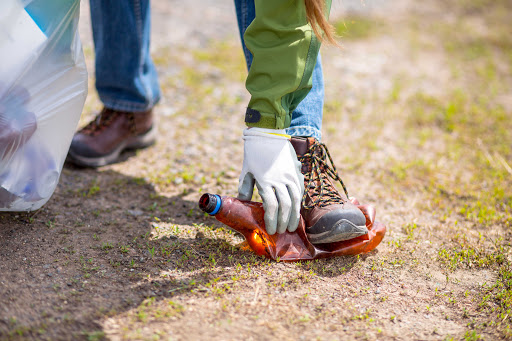Story by Irene Budzynski
You’ve seen those beer cans and soda cans that are lying pell mell at the side of the road, the metal cylinders that litter every town’s highways and byways, having been tossed by drivers who can’t be bothered to find a garbage can. Well, next time you see one, say a prayer of thanks for the litterbug because that tossed can may change a life.
There was a time when my husband was out of work, a recession was in full swing, and we had two small boys to feed. We exhausted every possibility for job opportunities, cut expenses to the bare bone, and depleted all resources. Every day would dawn with hope that it would be that particular day which would bring a job and income. Day after day–nothing.
I knew where all the Goodwill stores were and developed an eagle eye for finding nearly-new jeans, shirts, and jackets for the boys. It was a gala event when Mommy brought home “new” clothes to replace the holey pants which little boys create. I felt like I had struck it rich on the days when the blue tickets were half price and what I had bought sported a blue tag. It was more precious than buying the trendiest, most expensive outfit in a designer showroom.
Rummaging through dented cans in the shopping basket in the back of the grocery store became a family sport–a far cry from a quick stop at McDonald’s. Had we actually eaten out twice a week once upon a time? Did we waste all that money on greasy food just to get the must-have collectible toys? Canned beans never tasted so good.
Chances of finding a job were slim to none in the New England market in the early 1980s. Our high spirits disintegrated and we became panic-stricken. In desperation, I knew I had to keep going for the sake of our children. Despite my own promise that I would never ask for help, I held up my head and walked into a government office and applied for food stamps.
Sitting and waiting my turn, I wanted to bolt outside and never stop running. Embarrassment rolled into anger when the apathetic clerk looked over my application, snapped her gum, and stated in a singsong voice, “Oh, sorry. You DO qualify for food stamps, but you have to sell your car before you can receive them.” Without missing a beat, she turned away and called on the next hapless applicant.
Stunned, I explained that we needed our car to look for work. We didn’t live near public transportation and there would be no possibility of obtaining employment without a vehicle. With no visual acknowledgment of any kind, the clerk muttered, “Sorry. Next?” With that, I was dismissed.
I stumbled into the bright sunlight and swore that I would never in a million years ever ask anyone for help. Never again would I be humiliated. But, the problem remained. How could I feed my family?
Knowing I needed to clear my head, I began to go for long walks. The fresh air felt good and I began to sort things out in my mind, looking at our situation from a different angle. Despair was futile and soon praying was substituted for complaining. I prayed for the blessings of being out of work, for having a husband who was trying to be a good provider, for people who had less than us, for healthy children. Some days I was pretty low and could only thank God for having a pulse, but I made the conscious effort to have gratitude every morning when I walked.
Trying to avoid traffic on our country roads, I edged over into the brush and noticed all the cans which were strewn on the ground. Living in a state which recycles meant that I could cash each container in for a nickel apiece. Picking them up in my hands resulted in shiny rolling cylinders spilling over onto the asphalt, so the remainder were hidden behind a bush to be retrieved the next time around. A plastic bag tucked into my pocket became a necessity and then two bags became the norm. Soon there were dozens of sticky, dripping cans rattling around to redeem for enough money to buy a gallon of milk! A few more days of collecting and a loaf of bread was my trophy.
My goal each day was to see how many nickels I could find in the guise of discarded cans. Every week there would be enough to buy a staple and eventually the supply dwindled, but, most important, my attitude improved, and being out of work wasn’t the major disaster which I had initially perceived. I began to see the beauty around me which money couldn’t buy: the Canadian geese honking their way across the sky and the skunk cabbage appearing in late winter — signs of spring and hope and new beginnings.
That was 20 years ago. We’ve been given so many blessings, but we will never forget. Last week I saw a man rummaging around in the underbrush gathering up cans. He became beet-red when I shouted “Hello”, and he began to make excuses as to why he was picking up the dirty containers. I waved away his explanations and said, “A nickel is a nickel,” and I bent over to help him fill his bag.
Write Irene and let her know your thoughts on her story! [email protected]





